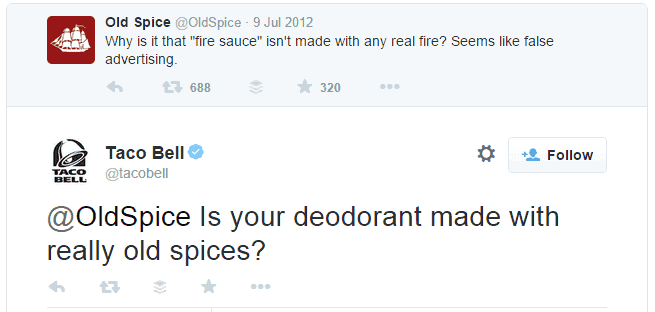Staying compliant with advertising and marketing is simple if you focus on just being truthful and clear with your customers. The rest is just understanding some subtleties on how to navigate the common legal traps in marketing.
Look to the FTC
 “Protecting America’s consumers for 100 years,” the Federal Trade Commission (FTC) is responsible for eliminating and preventing anticompetitive business practices. They focus on preventing unfair and deceptive practices affecting consumers and though state specific rules can come into play, the FTC is a monster in its reach towards regulating any advertising and marketing.
“Protecting America’s consumers for 100 years,” the Federal Trade Commission (FTC) is responsible for eliminating and preventing anticompetitive business practices. They focus on preventing unfair and deceptive practices affecting consumers and though state specific rules can come into play, the FTC is a monster in its reach towards regulating any advertising and marketing.
The FTC is a government level of enforcement that usually requires significant negative impact for them to get involved, but the Lanham Act allows your competitors to sue you directly for acts like false advertising and other states have similar remedies for other unfair business practices.
Telling the Truth in Marketing
Seems simple enough. Tell the truth and you will be free from liability, but exactly how much truth should you tell? Even the truth can be misleading or deceptive. According to the FTC, all marketing is prohibited from anything that contains a representation, omission, or practice that is “likely to mislead the consumer.”

Truth in Advertising
Think From the Consumer’s Perspective
The difficulty of compliance in this area is that even if you reasonably believe that you are not being deceptive, you still may be. Deception is determined from the perspective of the consumer, not the company. Though this may lead to some uncertainty, there is no reason to go crazy. It is not just any consumer, it is the quintessential reasonable consumer.
Take for example Greek yogurt. Would it be reasonable for someone to believe that the Greek yogurt was actually made and produced in Greece or is it just a type of yogurt? Similarly, there is no confusion as to whether Taco Bell’s fire sauce is really made of fire or if Old Spice deodorant is made with “really old spices.” Though, these two companies know how to have fun with it:
Tell the Entire Truth
Originally written in 1983, the FTC Policy Statement on Deception is the ultimate guide to the blurred lines of truth in advertising. Even after reading this policy statement, do not think you are suddenly an expert. Take the CEO of Billion Auto, Dave Billion Sr. who said after being forced to pay a $360,000 civil penalty that he “knew the FTC was looking at us last year and we thought we had done everything to comply with FTC regulations.”
Where did Billion Auto go wrong? They told the truth, yet their ad was considered deceptive. One of the handful of advertisements that were found to contain violations included a television ad promoting a car lease for $179 per month. The fine print, that was barely visible for three seconds disclaimed that the $179 price is for those military members or veterans who also put down $2,000.
The Bigger, the Clearer, the Brighter, the More In-your-face, the Better
So, should their fine print have been bigger and more apparent? Yes, according to the FTC, but how much bigger? Billion Auto wanted a font size, but FTC fell back to what a reasonable consumer would need to not be deceived by the advertisement. Perhaps a reasonable consumer would understand that that a lease requires qualifications and specific terms, but who would think that you would need to be a veteran in order to get that special price. Slam dunk.
Go through the FTC’s standards of deception. Not a fun read, but it makes more sense for most businesses to handing off the responsibility to legal counsel.
It is not just what you say, it is what you do not say and how you say it that matters.
Coupons and Certificates
What’s Your Golden Ticket Idea?
Michael excitedly starts a Willy Wonka-inspired promotional gimmick providing discount coupons to customers who receive golden tickets. Forgetting to put “limit one per customer” appears to cost the company a large amount of money. This episode of the Office classically illustrates how a coupon mistake can be costly. It worked out well for Michael, but most customers will take advantage.
Even the big companies fall into this trap. Best Buy went into panic mode after promoting its a coupon of a simple $50 off of a purchase of $100 or more if you pay with a Mastercard. Like Michael Scott, they forgot to put a limit per customer. Just a few weeks ago Starbucks had problems with its BOGO holiday drink.
10 Terms and Disclaimers to Put In Your Coupons
Writing up a compliant coupon is not rocket science. Here are the classic coupon disclaimers that can be utilized to prevent disputes:
- Time restrictions; valid between Date and Date
- Exclusions; excludes all X products (specifically described)
- Customer Use Limits; limit one per customer
- Other Promotions; may not be used with any other coupon or promotion
- Stock Limitations; limited quantities (must actually have quantity available)
- Number of Uses; each coupon may only be used once and may not be duplicated
- Manners of Use; printed coupons only
- Value; no cash value (some states require redemption value)
- Additional Fees; handling and shipping fees still apply
- Taxes; sales tax will be applied according to applicable law
Fixing a Coupon Mistake
The biggest risk of not honoring a coupon, even if made in mistake, is that it could expose your business to liability for deceptive practices, including bait-and-switch; however, the FTC’s guidelines on what constitutes bait-and-switch are pretty specific. The main component is the deliberate intention to deceive the customer into bringing them in as a shopper and having no intention of selling the product or service. Each case is different, but often not honoring a coupon is the only choice of a company. Even if there is civil liability, it may still be less than the cost of being forced to honor the original price.
By far, the best thing you can do is honor at least the spirit of the coupon and try to accommodate as much as possible. Acknowledge the mistake and try your best to make it right.
Gift Certificates
Gift certificates (even coupons that are sole can be considered gift certificates) have its own body of law. Most notably are legalities requiring cash redemption value or limits on expiration in states like California. This is often an issue when purchasing a business that may include the liabilities of a gift certificate.
Telemarketing Legally
Telemarketing is highly regulated. Understanding the nitty-gritty details for any cold call campaign is a hefty task. Unless you outsource this, compliance in this area is difficult. For example, if you deliver a prerecorded message in your telemarketing campaign you must allow the telephone to ring for at least fifteen (15) seconds or four (4) rings before disconnecting an unanswered call. Not really an obvious rule.
The Telemarketing Sale Rule (TSR) is the federal regulatory framework that governs these types of calls. They are designed to find a balance between commercial free speech and protecting the consumer from ultimately being taken advantage and/or being unduly harassed by these phone calls. Feel free to review it, but you are better off outsourcing to reputable company that is already familiar with these rules.
Does the TSR Apply?
The general rule is if you have any telephone marketing campaign selling any product or service you have to comply with the TSR. Then there are a number of exemptions that may apply. For example B2B calls (with few exceptions) are not governed by the TSR as well as calls responding to general media advertising. Even with these exemptions, those numbers on the National Do Not Call Registry are typically still restricted.
Some of the TSR Rules
In any case, the provisions of the TSR do set best practices whether or not it may apply to your campaign. For example, when you are selling products, disclosing cost and quantity is an obvious requirement. Doing things like requiring the consumer to opt out of a charged feature, the so-called “negative option,” is strictly prohibited.
Some more important rules include disclosing information upon the call being answered, i.e. disclosing your identity, the purpose of the call, and the nature of the goods and services being sold.
Sending Email SPAM Legally (and Texting)
Two laws in particular govern SPAM, the CAN-SPAM Act, (which stands for Controlling the Assault of Non-Solicited Pornography and Marketing) and the Telephone Consumer Protection Act (TCPA), impose significant restrictions on the commercial use of electronic communication. The first, enforced by the FTC, regulates unwanted commercial messages sent to non-wireless devices, like your home computer. The second, enforced by the FCC, extends protections to your mobile phone.
In its compliance guidelines, the FTC outlines seven basic rules for marketing emails.
- The header must be accurate and identify the person or business who is sending the message.
- The subject line must accurately reflect the content of the message.
- Senders must conspicuously identify the message as an advertisement.
- The message must contain a valid physical postal address, which may be a P.O. Box.
- The message must explain how the recipient can opt out of receiving messages in the future.
- The sender must honor those requests within 30 days.
- If your business hires another company to handle online marketing, both parties are responsible for complying with the law.
These restrictions do not cover “transactional or relationship” messages intended to facilitate an existing transaction. The FTC will look at the predominant purpose in a message that functions in both ways. Keep in mind that the penalties for non-compliance can be stiff.
The TCPA Bans Unwanted Texts
The law bans text messages sent to mobile phones using an auto dialer (software included), even if consumers have not placed their numbers on the National Do-Not-Call List. The ban does not cover emergency messages or those to which a consumer has consented. For commercial texts, the consumer must consent in writing and be allowed to opt out, even after initially consenting. For political or non-profit messages, the consent may be oral.
Privacy and Data Mining
Data is the commodity for many free software service startups. Data tracking of web visitors and buying data of target customers have legal restrictions on how the data is obtained, used, and distributed.
Though most states do not require a privacy policy, it is advisable to have one. Though the terms of such must be followed strictly. The actual contents of the privacy policy are very flexible with exception to some more subtle issues when collecting information from children under the age of 13, certain financial activities, or health care related information under HIPAA. For example, you can tell your visitors that you will collect and sell their private information or that you will never sell their information. The reality is that writing a privacy policy is much easier than actually adhering to it.
Buying data can be problematic if the data was not obtained legally. Take Ammo To Go’s recent data breach that resulted another company innocently buying the email data only to find that it was actually stolen.
Affiliate Blog Marketing
Affiliate marketing is a now common practice in all content publishing. Individual or even mass media websites can provide content to its users with references, recommendations, or advertisements that click to the website owner’s affiliates. Such traffic is tracked and if a sale is made, a commission can be paid to the procuring website owner. Sometimes the visitor is not even aware of this relationship. Aastroturfing is the practice of masking such affiliates as if the recommendation or reference is somehow organic.
The FTC has its guide concerning the use of endorsements and testimonials in advertising providing that such relationships between an endorser of a product and the marketer of the product need to be disclosed. For example, a cell phone blog reviewer who receives compensation (whether directly or indirectly) from the phone manufacture for the product he or she is reviewing and recommending should be disclosed.
Additionally, such endorsements must be truthful and not misleading. This can be problematic when you as a business is hiring a third party to endorse your product. It is necessary for you to ensure that the actual endorsement fits the same level of trust and disclosure that you would have in any advertisement coming directly from the company in order to minimize liability.
Though there is a risk if violating these guidelines, there seems to be very little monitoring and enforcement, admittedly from the FTC; though private enforcement through the Lanham Act or widespread noncompliance leads to substantial risk.

![Why the As Seen On TV Ads Were Too Good to Be True [e162] Why the As Seen On TV Ads Were Too Good to Be True](https://www.pashalaw.com/wp-content/uploads/2015/03/Why-the-As-Seen-On-TV-Ads-Were-Too-Good-to-Be-True.jpg)
![The Fine Line Between Puffery and False Advertising [e158] The Fine Line Between Puffery and False Advertising](https://www.pashalaw.com/wp-content/uploads/2015/03/The-Fine-Line-Between-Puffery-and-False-Advertising.jpg)




![Law in the Digital Age: Exploring the Legal Intricacies of Artificial Intelligence [e323]](https://www.pashalaw.com/wp-content/uploads/2023/11/WhatsApp-Image-2023-11-21-at-13.24.49_4a326c9e-300x212.jpg)
![Unraveling the Workforce: Navigating the Aftermath of Mass Layoffs [e322]](https://www.pashalaw.com/wp-content/uploads/2023/07/Untitled-design-23-300x212.png)
![Return to the Office vs. Remote: What Can Employers Legally Enforce? [e321]](https://www.pashalaw.com/wp-content/uploads/2023/01/Pasha_LSSB_321_banner-300x212.jpg)
![Explaining the Hans Niemann Chess Lawsuit v. Magnus Carlsen [e320]](https://www.pashalaw.com/wp-content/uploads/2022/10/LAWYER-EXPLAINS-7-300x169.png)
![California v. Texas: Which is Better for Business? [313]](https://www.pashalaw.com/wp-content/uploads/2021/07/Pasha_LSSB_CaliforniaVSTexas-300x212.jpg)
![Buyers vs. Sellers: Negotiating Mergers & Acquisitions [e319]](https://www.pashalaw.com/wp-content/uploads/2022/06/Pasha_LSSB_BuyersVsSellers_banner-300x212.jpg)
![Employers vs. Employees: When Are Employment Restrictions Fair? [e318]](https://www.pashalaw.com/wp-content/uploads/2022/05/Pasha_LSSB_EmployeesVsEmployers_banner-1-300x212.jpg)
![Vaccine Mandates Supreme Court Rulings [E317]](https://www.pashalaw.com/wp-content/uploads/2022/02/WhatsApp-Image-2022-02-11-at-4.10.32-PM-300x212.jpeg)
![Business of Healthcare [e316]](https://www.pashalaw.com/wp-content/uploads/2021/11/Pasha_LSSB_BusinessofHealthcare_banner-300x212.jpg)
![Social Media and the Law [e315]](https://www.pashalaw.com/wp-content/uploads/2021/10/WhatsApp-Image-2021-10-06-at-1.43.08-PM-300x212.jpeg)
![Defining NDA Boundaries: When does it go too far? [e314]](https://www.pashalaw.com/wp-content/uploads/2021/09/Pasha_LSSB_NDA_WordPress-2-300x212.jpg)
![More Than a Mistake: Business Blunders to Avoid [312] Top Five Business Blunders](https://www.pashalaw.com/wp-content/uploads/2021/06/Pasha_LSSB_Blunders_WP-1-300x212.jpg)
![Is There a Right Way to Fire an Employee? We Ask the Experts [311]](https://www.pashalaw.com/wp-content/uploads/2021/02/Pasha_LSSB_FireAnEmployee_Website-300x200.jpg)
![The New Frontier: Navigating Business Law During a Pandemic [310]](https://www.pashalaw.com/wp-content/uploads/2020/12/Pasha_LSSB_Epidsode308_Covid_Web-1-300x200.jpg)
![Wrap Up | Behind the Buy [8/8] [309]](https://www.pashalaw.com/wp-content/uploads/2020/11/Pasha_BehindTheBuy_Episode8-300x200.jpg)
![Is it all over? | Behind the Buy [7/8] [308]](https://www.pashalaw.com/wp-content/uploads/2020/09/iStock-1153248856-overlay-scaled-300x200.jpg)
![Fight for Your [Trademark] Rights | Behind the Buy [6/8] [307]](https://www.pashalaw.com/wp-content/uploads/2020/07/Fight-for-your-trademark-right-300x200.jpg)
![They Let It Slip | Behind the Buy [5/8] [306]](https://www.pashalaw.com/wp-content/uploads/2020/06/Behind-the-buy-they-let-it-slip-300x200.jpg)
![Mo’ Investigation Mo’ Problems | Behind the Buy [4/8] [305]](https://www.pashalaw.com/wp-content/uploads/2020/05/interrobang-1-scaled-300x200.jpg)
![Broker or Joker | Behind the Buy [3/8] [304] Behind the buy - Broker or Joker](https://www.pashalaw.com/wp-content/uploads/2020/04/Joker-or-Broker-1-300x185.jpg)
![Intentions Are Nothing Without a Signature | Behind the Buy [2/8] [303]](https://www.pashalaw.com/wp-content/uploads/2020/04/intentions-are-nothing-without-a-signature-300x185.jpg)
![From First Steps to Final Signatures | Behind the Buy [1/8] [302]](https://www.pashalaw.com/wp-content/uploads/2020/04/first-steps-to-final-signatures-300x185.jpg)
![The Dark-side of GrubHub’s (and others’) Relationship with Restaurants [e301]](https://www.pashalaw.com/wp-content/uploads/2015/04/When-Competition-Goes-Too-Far-Ice-Cream-Truck-Edition-300x201.jpg)
![Ultimate Legal Breakdown of Internet Law & the Subscription Business Model [e300]](https://www.pashalaw.com/wp-content/uploads/2019/05/Ultimate-Legal-Breakdown-of-Internet-Law-the-Subscription-Business-Model-300x196.jpg)
![Why the Business Buying Process is Like a Wedding?: A Legal Guide [e299]](https://www.pashalaw.com/wp-content/uploads/2019/03/futura-300x169.jpg)
![Will Crowdfunding and General Solicitation Change How Companies Raise Capital? [e298]](https://www.pashalaw.com/wp-content/uploads/2018/11/Will-Crowdfunding-and-General-Solicitation-Change-How-Companies-Raise-Capital-300x159.jpg)
![Pirates, Pilots, and Passwords: Flight Sim Labs Navigates Legal Issues (w/ Marc Hoag as Guest) [e297]](https://www.pashalaw.com/wp-content/uploads/2018/07/flight-sim-labs-300x159.jpg)
![Facebook, Zuckerberg, and the Data Privacy Dilemma [e296] User data, data breach photo by Pete Souza)](https://www.pashalaw.com/wp-content/uploads/2018/04/data-300x159.jpg)
![What To Do When Your Business Is Raided By ICE [e295] I.C.E Raids business](https://www.pashalaw.com/wp-content/uploads/2018/02/ice-cover-300x159.jpg)
![General Contractors & Subcontractors in California – What you need to know [e294]](https://www.pashalaw.com/wp-content/uploads/2018/01/iStock-666960952-300x200.jpg)
![Mattress Giants v. Sleepoplis: The War On Getting You To Bed [e293]](https://www.pashalaw.com/wp-content/uploads/2017/12/sleepopolis-300x159.jpg)
![The Harassment Watershed [e292]](https://www.pashalaw.com/wp-content/uploads/2017/12/me-2-300x219.jpg)
![Investing and Immigrating to the United States: The EB-5 Green Card [e291]](https://www.pashalaw.com/wp-content/uploads/2012/12/eb-5-investment-visa-program-300x159.jpg)
![Responding to a Government Requests (Inquiries, Warrants, etc.) [e290] How to respond to government requests, inquiries, warrants and investigation](https://www.pashalaw.com/wp-content/uploads/2017/10/iStock_57303576_LARGE-300x200.jpg)
![Ultimate Legal Breakdown: Employee Dress Codes [e289]](https://www.pashalaw.com/wp-content/uploads/2017/08/Ultimate-Legal-Breakdown-Template-1-300x159.jpg)
![Ultimate Legal Breakdown: Negative Online Reviews [e288]](https://www.pashalaw.com/wp-content/uploads/2017/06/Ultimate-Legal-Breakdown-Online-Reviews-1-300x159.jpg)
![Ultimate Legal Breakdown: Social Media Marketing [e287]](https://www.pashalaw.com/wp-content/uploads/2017/06/ultimate-legal-breakdown-social-media-marketing-blur-300x159.jpg)
![Ultimate Legal Breakdown: Subscription Box Businesses [e286]](https://www.pashalaw.com/wp-content/uploads/2017/03/ultimate-legal-breakdown-subscription-box-services-pasha-law-2-300x159.jpg)
![Can Companies Protect Against Foreseeable Misuse of Apps [e285]](https://www.pashalaw.com/wp-content/uploads/2017/01/iStock-505291242-300x176.jpg)
![When Using Celebrity Deaths for Brand Promotion Crosses the Line [e284]](https://www.pashalaw.com/wp-content/uploads/2017/01/celbrity-300x159.png)
![Are Employers Liable When Employees Are Accused of Racism? [e283] Racist Employee](https://www.pashalaw.com/wp-content/uploads/2016/12/Are-employers-liable-when-an-employees-are-accused-of-racism-300x159.jpg)
![How Businesses Should Handle Unpaid Bills from Clients [e282] What to do when a client won't pay.](https://www.pashalaw.com/wp-content/uploads/2016/12/How-Businesses-Should-Handle-Unpaid-Bills-to-Clients-300x159.png)
![Can Employers Implement English Only Policies Without Discriminating? [e281]](https://www.pashalaw.com/wp-content/uploads/2016/11/Can-Employers-Impliment-English-Only-Policies-Without-Discriminating-300x159.jpg)
![Why You May No Longer See Actors’ Ages on Their IMDB Page [e280]](https://www.pashalaw.com/wp-content/uploads/2016/10/IMDB-AGE2-300x159.jpg)
![Airbnb’s Discrimination Problem and How Businesses Can Relate [e279]](https://www.pashalaw.com/wp-content/uploads/2016/09/airbnb-300x159.jpg)
![What To Do When Your Amazon Account Gets Suspended [e278]](https://www.pashalaw.com/wp-content/uploads/2016/09/What-To-Do-When-Your-Amazon-Account-Gets-Suspended-1-300x200.jpg)
![How Independent Artists Reacted to Fashion Mogul Zara’s Alleged Infringement [e277]](https://www.pashalaw.com/wp-content/uploads/2016/08/How-Independent-Artists-Reacted-to-Fashion-Mogul-Zaras-Alleged-Infringement--300x159.jpg)
![Can Brave’s Ad Replacing Software Defeat Newspapers and Copyright Law? [e276]](https://www.pashalaw.com/wp-content/uploads/2016/08/Can-Braves-Ad-Replacing-Software-Defeat-Newspapers-and-Copyright-Law-300x159.jpg)
![Why The Roger Ailes Sexual Harassment Lawsuit Is Far From Normal [e275]](https://www.pashalaw.com/wp-content/uploads/2016/07/WHY-THE-ROGER-AILES-SEXUAL-HARASSMENT-LAWSUIT-IS-FAR-FROM-NORMAL-300x159.jpeg)
![How Starbucks Turned Coveted Employer to Employee Complaints [e274]](https://www.pashalaw.com/wp-content/uploads/2016/07/iStock_54169990_LARGE-300x210.jpg)
